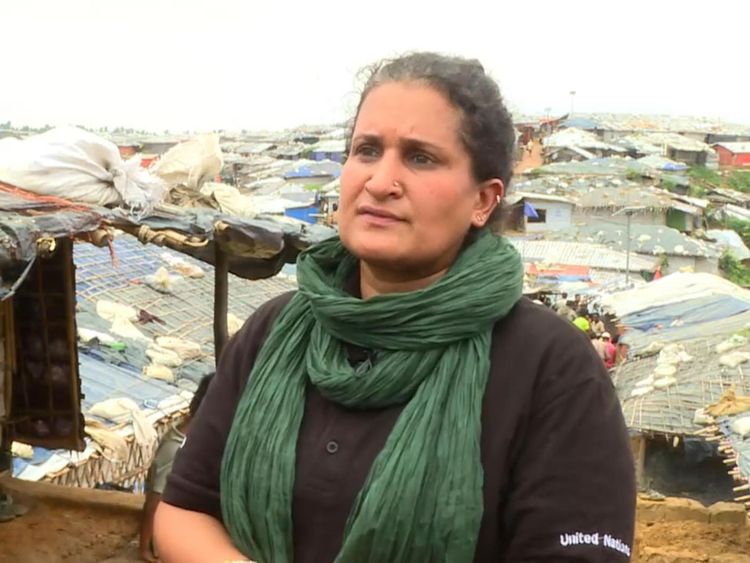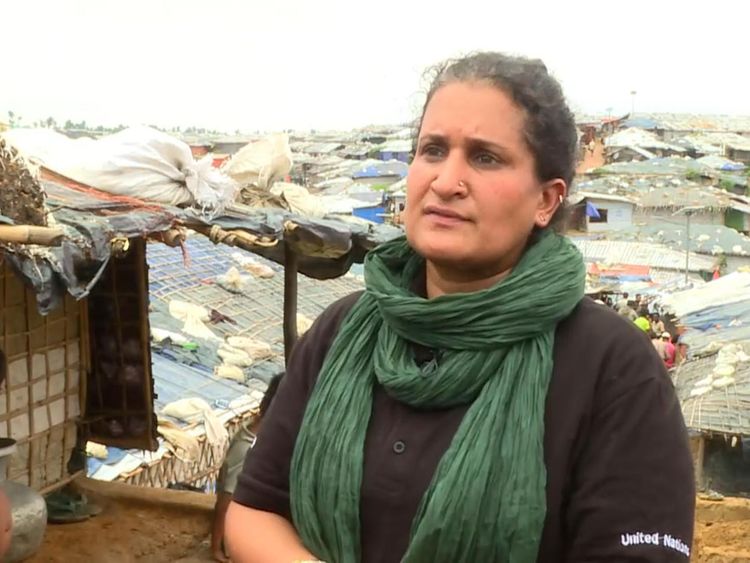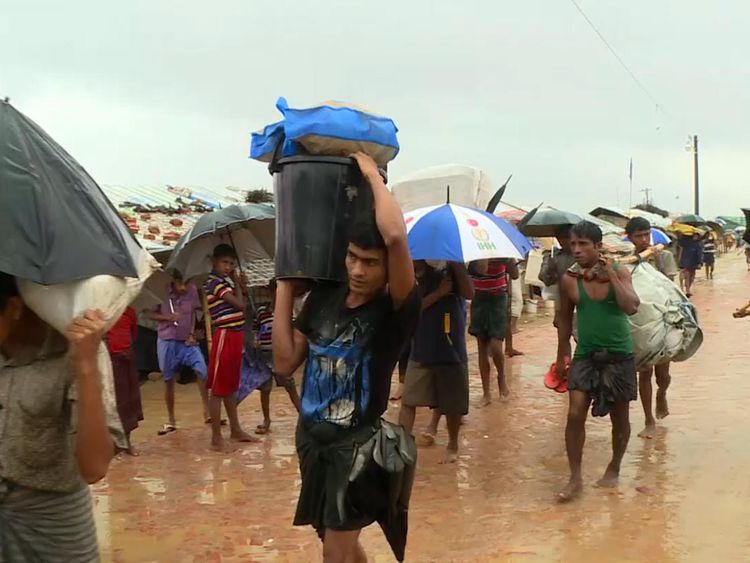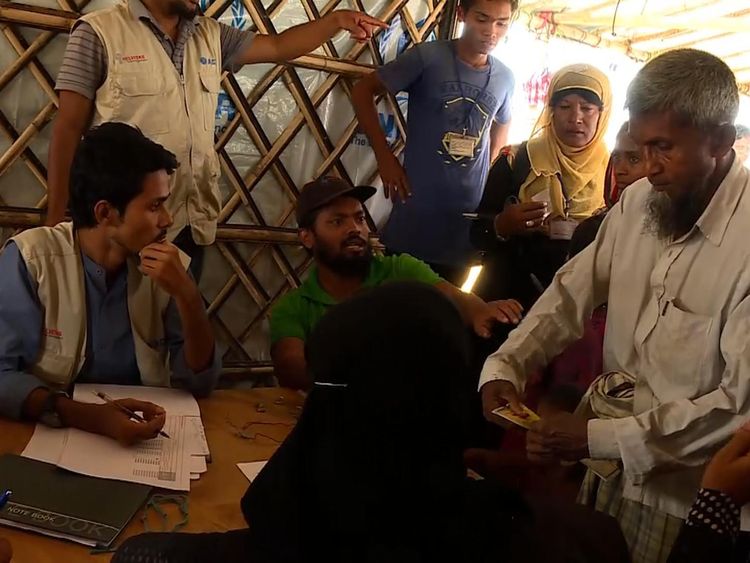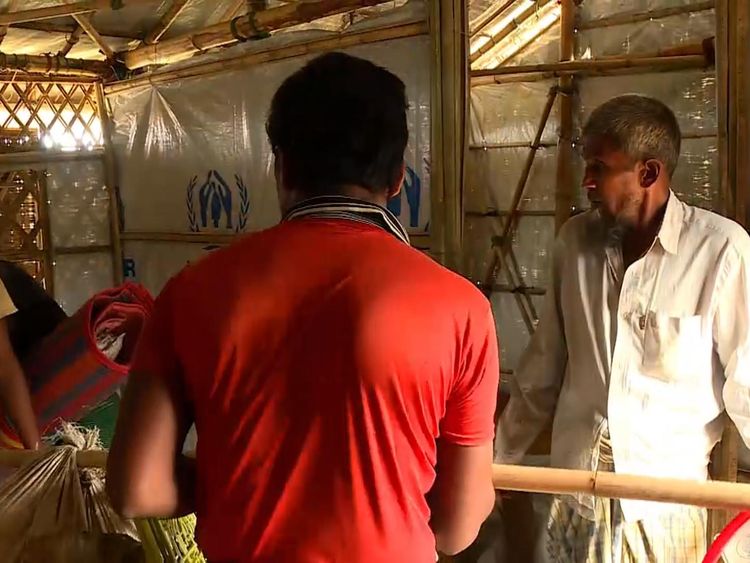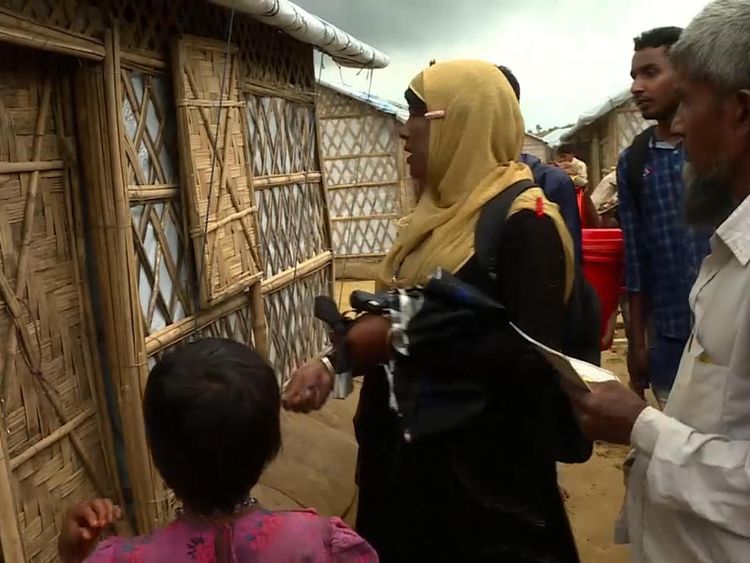Rohingya refugees in camps in Bangladesh face “a race against time” as the monsoon season brings heavy rains, leading to landslides and floods.
Twelve people are thought to have died so far, with the heaviest rain yet to come. Sky News has spoken to the families of some of the victims.
“This is an emergency within an emergency,” Shelley Thakral, a World Food Programme spokesperson said.
“It is a race against time – we need to move people to safe locations as fast as we can and make sure they have the food and resources and relief they need to survive.”
About 200,000 people are estimated to be at risk of landslides and floods in the refugee camps by Cox’s Bazar, on the Myanmar Bangladesh border.
Some 715,000 refugees have arrived at the camps since August 2017, fleeing violence in Myanmar which the UN has described as “a textbook example of ethnic cleansing”. Nearly one million people now live in the camps.
Among the first victims of the monsoon was Ajida Begam, a six-year-old girl.
Last month she left home to collect firewood with friends. The earth above gave way and crushed her.
Her father Ruhal Amin has only one photo of her – the identity card issued to every refugee who arrives at the camps.
He points out a corner of the small shelter in which he lives with his family and four surviving children.
“When she came back from school she would play there, inside. Even though we faced many difficulties outside, when it was all of us together we felt very happy.
“She was a good girl. I cannot forget her.
“The youngest one… he always asks, ‘Ajida, Ajida, why is she not coming home?’ And he also dreams of her often.”
Efforts have begun to relocate the 42,000 refugees at highest risk from the monsoon. Sky News joined one operation.
In it, 158 people were moved, walking as much as five kilometres with their belongings on their shoulders.
Many were relieved to be on their way and spoke as they walked.
“I came to Bangladesh to seek refuge, a safe place here,” Mohammed Esop told Sky News.
“But these monsoon heavy rains destroyed my shelter and I had to move to another place. I don’t know what happens in the next place.”
Mr Esop arrived in Bangladesh in September last year. His village in Myanmar was attacked by the military, he said, and several people were shot dead.
At the end of the march, the refugees arrived to find land that had been bulldozed flat. Bigger and more secure prefabricated shelters had been allocated to each family.
“Crossing the border I didn’t find a safe space at first,” Mr Esop said. “And I had to construct my shelter on the hillside so when the monsoon started it fell down in the landslide and I had fear. But now there are no hills here so I feel safe.”
At least 33,000 people have been relocated in similar operations so far. Ten thousand people remain at risk. Others remain in place.
Abdul Shakur, a 32-year-old who used to work as a courier in Myanmar before fleeing, built his own shelter on land allocated by aid organisations. It wasn’t strong enough for the first rains two weeks ago. A wall collapsed while his family slept.
“It was raining heavily and the wind was blowing and suddenly the mud wall fell down on us while we were sleeping,” Mr Shakur told Sky News.
“We were all in the mud. I tried myself to escape, and I saw my wife and my children in the mud and pulled them out.
“When we screamed, some people were trying to pull out and pull me and my youngest son.
“We did and he was still alive, we called a local doctor here because it was still raining and we couldn’t go to the nearby clinic. He thought he was bleeding too much and his skull was broken.
“A few minutes later he died.”
The monsoon season is expected to last for another two months. Further rain also increases the danger of waterborne diseases.
Despite the dire living conditions, Bangladesh remains much safer for Rohingya than going back to Myanmar.
But every refugee Sky News spoke said they wanted to return one day.
Mr Shakur told Sky News: “Of course we will go back. There should be assurances for our citizenship, for our rights and freedom of movement, and there should be the same treatment to every ethnicity, and then we can return.”
From – SkyNews



